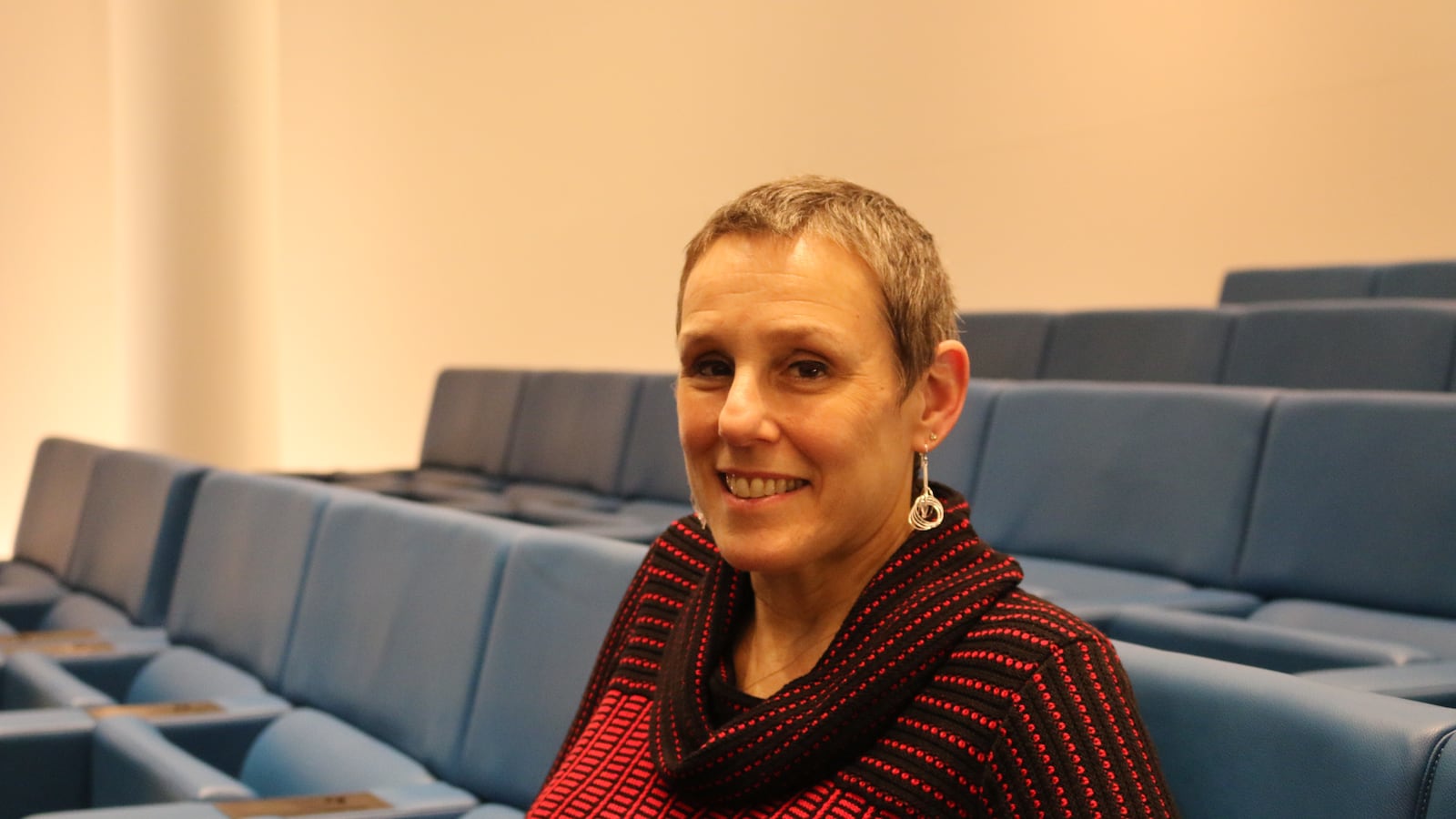Until 11 years ago, Wendy Menard’s career focused on taking care of other people’s money.
The former finance manager, who once worked as a budget director for Lord & Taylor, decided that corporate work left her cold. As the mother of two New York City public school students, she had always enjoyed participating in the PTA and school leadership team. So when her kids aged out of school, she settled on a new career path.
“I wanted to do something more meaningful,” Menard said.
Now she’s a math teacher at Brooklyn’s Midwood High School with 11 years of teaching under her belt. But Menard has also developed an interest in helping other teachers think about how social justice issues can intersect with math and science education.
Menard blogs about education and has worked with Math for America — a nonprofit that offers fellowships to roughly 1,000 New York City educators designed to help them refine their craft. Chalkbeat caught up with her recently during an MfA workshop she helped facilitate called “Race, Equity, and STEM Education.”
The interview has been edited for length and clarity.
Current subject: Algebra 2, geometry, discrete math.
What’s a word or phrase you would use to describe your teaching style?
Hands-on. Conceptual. Interactive. Energetic. I never sit down. I try to teach them bigger ideas rather than teaching to a test, which is a challenge in a Regents-based high school.
What do you do if a student isn’t understanding something?
I try to explain things a different way. I try to redirect students to one another because very often they can explain things in a way that I can’t. And if a student’s really lost, my door is always open and I tell them that daily.
Tell me about how you became interested in talking about social justice.
The first school I was in for five years was in a very high-need neighborhood. And [the inequality] was just so clear to me, especially having kids in the public schools. Like my older daughter went to Stuyvesant and when I went to her choir concerts, I would cry because of the access she had while my students had nothing. And so it just became an issue for me.
So I engaged in the process of educating myself, reading books. I took a workshop with the Anti-racist Alliance on undoing racism. And when I became a member of Math for America last year, I applied to be a part of the racially relevant pedagogy [professional learning team].
What were the things you were seeing in your daughter’s education that you weren’t seeing in your own students’ education?
Resources. Arts — lots of money for arts and lots of choices for arts. And just materials, materials to do things in the school. The vibe was so different. You go into a school that’s a school of high achievement versus a school where everyone is struggling and it feels very different.
How in your teaching practice do you think about social justice?
It’s frustrating, it’s really frustrating. There’s a Regents curriculum and there’s a topic you have to teach every single day. I teach electives every term and the electives are usually for students who are not going on to Algebra 2 or precalculus. So I have a lot of room to teach whatever content I want, and I try to infuse social justice themes into those classes.
What are the main things you tell teachers who might not see the connection between math/science and social justice?
Math in particular is a huge gatekeeper in terms of college. If your students can’t pass a placement exam or an entrance exam, they end up in remedial math when they go to college. And for a lot of kids that becomes a stumbling block that they just don’t recover from.
They end up paying for a class that they’re not earning credit for, and they just fall further and further behind. So that’s the connection right there.
How does that tension manifest in your thinking about teaching?
I can’t know what their lives are like. I’ve lived a life of privilege. So when I look at a child who’s struggling and I’m really frustrated with them, I know that I can’t know what their life is like.
Some kids are open about it, some kids are willing to talk to you about it and they’ll just put it out there. And there are other kids who just come in and they won’t say a word. And I do my best.
Yeah, I’d like to remake the education system — but if I can’t, I’d like to help a few kids.

